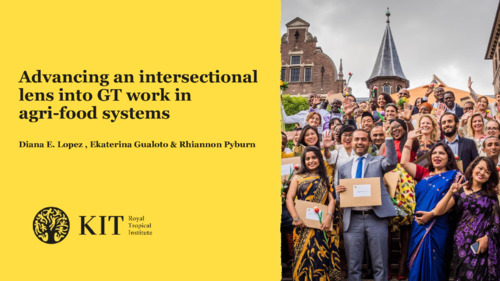Advancing an intersectional lens into gender transformative work in agri-food systems
Abstract
Intersectionality provides a powerful framework for understanding the intricate connections between different dimensions of social identity and their influence on individual experiences of discrimination and privilege. When applied to gender-transformative approaches (GTAs) in agri-food systems, intersectionality becomes critical for unraveling inequalities, including how existing inequalities are exacerbated by shocks and long-term stressors such as malnutrition, conflict, and climate change. The literature on GTAs in agri-food systems underscores the need to consider diverse identities and experiences to guide the design of gender-transformative (GT) interventions. Nevertheless, to date, only fragmented efforts embed an intersectional lens into their gendertransformative work, and operationalization of intersectionality is limited. Our literature review (2010– 2023) confirms this: out of 94 sources on GTAs only 30 mention intersectionality with few empirical studies. The limited use of an intersectional approach in current GT work translates into a lack of empirical evidence while it reveals the necessity for further exploration and implementation, stressing the need for better evidence to understand the effectiveness of GT approaches and their outcomes in achieving gender equality. In this paper, we profile opportunities for adopting an intersectional lens in GT work with an emphasis on diverse experiences of women smallholder farmers from Ghana and Mexico. Our analysis suggests that by centering the experiences of individuals from diverse backgrounds in a systematic, context-specific way, GT interventions can transcend current limitations. Furthermore, through a critical examination of power structures, GTAs grounded in intersectionality can pave the way for social justice within existing agri-food systems.

